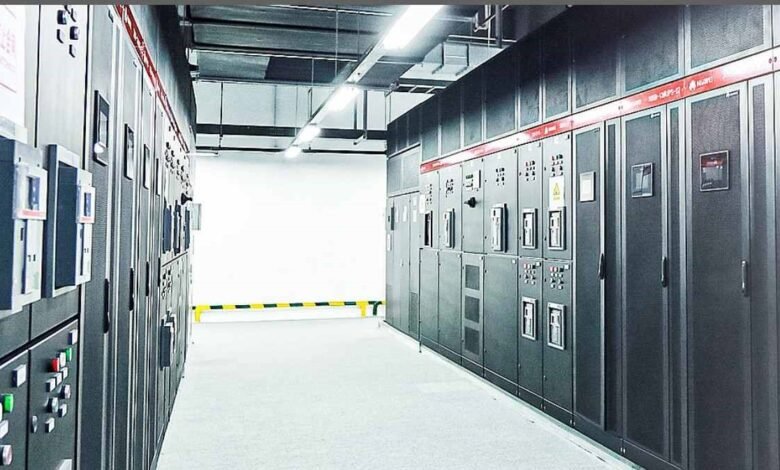Why Choose a Modular UPS for Your Business?

Unexpected power outages may impact business and infrastructure. This is why more businesses are using adaptive, trustworthy power protection technologies. A Modular UPS is a versatile, efficient, and simple power backup solution for businesses. Modular UPS systems allow you to increase capacity and redundancy without completely rebuilding the system. Companies may increase power resilience without overcommitting to this flexibility. Understanding how modular systems work may help you make better decisions in a small data center or a large commercial server farm. In this post, we will discuss why a Modular UPS may be the greatest option for safeguarding your operations and developing your business.
What Are the Benefits of a Modular UPS for Businesses?
Scalability That Grows with Your Business
Scalability is one of the main benefits of a modular UPS. As businesses change, so do their electricity needs. You may replace the UPS entirely if necessary by adding new power modules thanks to its modular architecture. This implies that you never have to pay in advance for a capacity that is never utilized. Your UPS can expand with your infrastructure, saving you money and time. Scaling up reduces complexity and downtime by becoming a plug-and-play process. This results in more flexibility and planning for facility operators or IT administrators. You may invest in what you need now and grow later rather than speculating on what you’ll need later. This modular expansion strategy fits in well with contemporary corporate plans that emphasize sustainable and flexible operations.
Improved Energy Efficiency and Cost Savings
Energy efficiency is a vital element in reducing operational costs. A modular UPS often delivers high-efficiency performance, even at low loads. This is particularly important since commercial buildings and data centers seldom function at full capacity regularly. The modular architecture reduces heat production and energy loss by activating only necessary components. Decreased heat alleviates strain on cooling systems, leading to enhanced savings. Over time, these savings compound, making modular systems more cost-effective than traditional UPS arrangements. Organizations may increase profitability and reduce their carbon footprint by decreasing energy use and cooling costs. Investing in efficient infrastructure is both wise and a shrewd business strategy.
See also: Supercharge Your Stock Trading with Stockity’s Innovative Technology
Faster Maintenance with Hot-Swappable Modules
Productivity is hampered by downtime. Because modular UPS systems include hot-swappable modules, technicians may update or replace modules without having to stop the system altogether. This improves overall uptime and decreases service disruptions. Full shutdowns are often necessary for maintenance on traditional UPS systems, which may interfere with company operations and increase the risk of data loss. Modular systems, on the other hand, isolate problematic parts while maintaining overall functionality. This leads to streamlined maintenance procedures and faster service times. Additionally, it enables IT teams to respond quickly to crises. That dependability may be crucial for vital sectors like e-commerce, healthcare, and banking. Continuous operations and peace of mind are supported by a modular configuration with hot-swappable features.

How to Choose the Right Modular UPS System?
Factors to Consider: Load Size, Redundancy, and Future Needs
You must determine your present and future power loads before choosing a modular UPS. Determine how much power your vital systems need overall first. Next, think about redundancy or the amount of backup power required to keep things running in the event of a breakdown. Commonly, N+1 redundancy means that if one module fails, the load is supported by an extra module. Future expansion is also important. Capacity growth should be supported by your UPS without requiring a complete system redesign. This is made simpler by modular designs, but preparation is still essential. Select a system that can handle both immediate and long-term power requirements. Knowing your load profile can help you choose a UPS that supports your operational objectives, avoids overspending, and safeguards vital infrastructure as your company expands.
Certification, Compliance, and Manufacturer Reputation
Not every UPS system is made equally. Look for models that have international certifications like ISO, UL, or CE when assessing a modular UPS. These guarantee dependability, performance, and safety. Your choice may also be influenced by adherence to environmental and energy efficiency standards, particularly in highly regulated sectors. Think about the manufacturer’s history in addition to the specifications. For what length of time have they been operating? What are the opinions of customers? Better customer service, longer warranties, and more dependable parts are often associated with a recognized brand. Additionally, several companies include analytics tools and remote monitoring for preventative maintenance. Selecting a certified system from a reliable manufacturer lowers long-term risks and guarantees that your investment will continue to provide returns.
Questions to Ask Your UPS Vendor
Choosing the appropriate Modular UPS requires more than simply selecting a model. To confirm that the system satisfies your requirements, ask the vendor essential questions. What is the maximum capacity and scalability range? How are redundancies handled? What maintenance support is provided, and are the modules hot-swappable? Request paperwork about certifications, warranty terms, and projected longevity. Inquire about real-world case studies or references from companies like yours. Check to see whether the system contains real-time monitoring software or can be integrated into the current infrastructure. Inquire about the lead time and installation requirements. An excellent provider will give straightforward responses and specialized advice. These questions not only help you comprehend what you’re purchasing, but they also disclose how dependable and helpful the provider will be following the transaction.
Conclusion
A Modular UPS is more than a backup power solution—it’s a strategic investment in business continuity. Its scalability, efficiency, and simplicity of maintenance make it suitable for businesses that want dependable power without adding extra complexity. By selecting a modular system, you get the flexibility to adapt as your organization grows while also lowering operating expenses and environmental effects. Understanding your power requirements, confirming system certifications, and working with a reputable vendor are all necessary for making the best decision. Don’t settle for outmoded infrastructure that stifles your progress. A modular UPS provides control, protection, and long-term value. Whether you’re renovating an old setup or building a new one, modular power systems are the sensible way to go.







